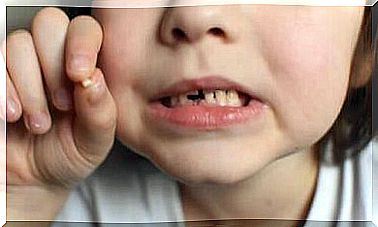6 Problems With Self-esteem In Teenagers

Unfortunately, problems with self-esteem in teenagers are quite common, and it can have a major impact on their quality of life.
Self-esteem is considered one of the most important keys to success at all stages of life. But developing a positive self-image and a healthy self-esteem is extra important for young people.
Having a low self-esteem can be extremely difficult during adolescence, as it is a period when you are exposed to new experiences and personal relationships, such as starting high school or getting your first summer job.
Consequently, problems with self-esteem are associated with a number of psychological, physical and social consequences. This can affect development during adolescence and the transition to adulthood. It can even lead to disorders such as depression, anxiety or eating disorders.
Studies show that low self-esteem is associated with a number of influencing risk factors, such as obesity, watching TV or study results. All these aspects must be included in the conversation between the parents and the young people to ensure their well-being.
6 signs of problems with self-esteem in teenagers
These are some of the most common problems when it comes to adolescents’ self-esteem:
Inability to achieve their goals
Young people who have problems with their self-esteem often have difficulty achieving set goals. Responsibilities have a direct impact on self-esteem. Not being able to handle or achieve certain goals directly affects their view of themselves.
In fact, adolescence is a stage where you have to learn to overcome the obstacles and frustration that arise when you do not achieve what you want. In the same way, a negative attitude will not in any way contribute to one’s ability to achieve one’s goals.

To constantly compare oneself with others
Another problem with self-esteem comes from making comparisons. Comparing oneself with others is one of the most common mistakes that teenagers make and that contributes most to undermining their morale and self-esteem.
Unfortunately, comparisons are constantly ongoing during processes of self-realization and personal development. Teenagers base many of their thoughts on constant comparisons with others. But comparisons are not rational, because all people are different, and have their specific qualities and shortcomings.
Poor motivation is common in problems with self-esteem in teenagers
Adolescence is a complicated and sensitive period. Many teens find that their motivation to pursue success is seriously jeopardized by the physical, emotional, social, or neurological barriers that may arise at this stage.
There is definitely a high incidence of motivational difficulties among teenagers. This lack of motivation can lead to apathy, fatigue, passivity, difficulties in working together, poor academic results or social isolation.
4. Constantly brooding and anxious thoughts
Poor self-esteem causes teens to have many anxious thoughts in their heads about things that do not necessarily deserve extra attention.
Pondering is a part of life, but it reinforces negative thoughts and insecurities, and it can cause us to become blocked and not achieve our goals.
5. Difficulty relating to others
Social difficulties tend to be attributed to shyness, but they can also be caused by a lack of self-esteem.
In fact, teens with low self-esteem often have communication problems and feel afraid or ashamed to express their opinions. A fear of not feeling accepted also complicates relationships with other young people.
6. To feel inferior
A feeling of inferiority develops from a tendency to want to be better than others. This tendency is so overwhelming that as soon as there is an obstacle between the person and his or her needs, the teenager feels inferior.

More clear indications of problems with self-esteem in teenagers
A teenager with low self-esteem is likely to have negative thoughts about their own worth. These are the common signs that indicate a state of low self-esteem:
- To avoid trying new things.
- Not feeling loved or wanted.
- Blame others for their own shortcomings.
- To show emotional indifference.
- Inability to tolerate normal levels of frustration.
- Talk negatively about yourself and constantly compare yourself with others.
- A constant fear of failure or shame.
- Difficulty making new friends.
- Low levels of motivation and interest.
Finally, remember that problems with self-esteem in teens are characterized by a lack of self-confidence and belief in their own abilities. As a parent, if you find that your child has low self-esteem, then the most important thing is to try to listen to how he feels, and to give him positive comments to strengthen his self-confidence.









